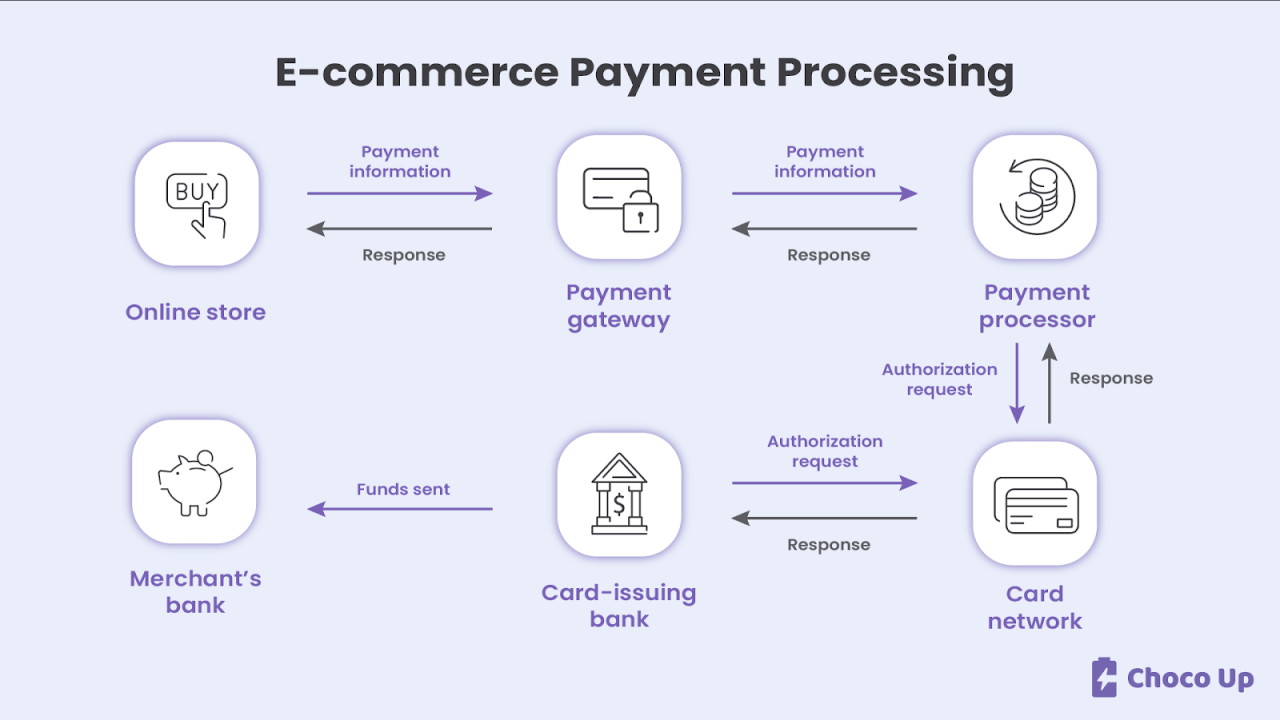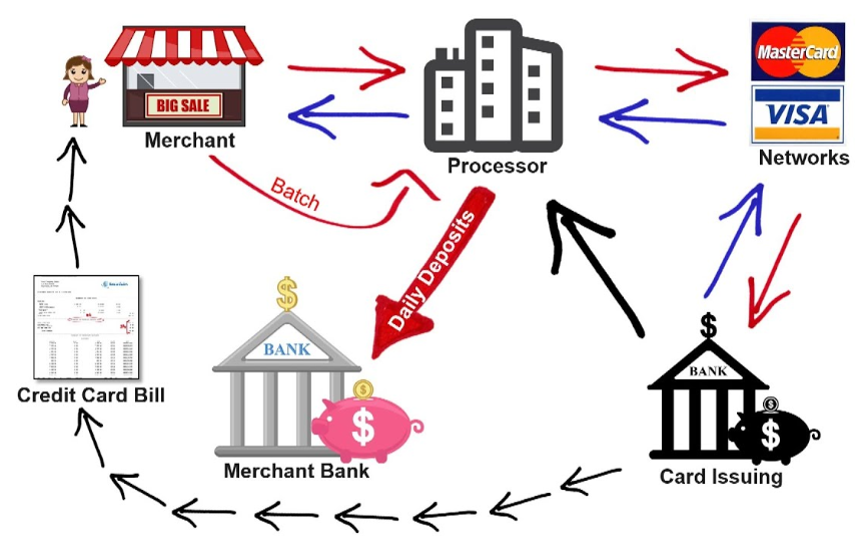Ecommerce Merchant Services Explained: Fees, Setup, and Scalability – A Comprehensive Guide

Ecommerce Merchant Services Explained: Fees, Setup, and Scalability sets the stage for this detailed exploration, providing a deep dive into the intricacies of online payment solutions. From understanding transaction fees to navigating the setup process, this guide is your gateway to mastering the world of Ecommerce Merchant Services.
Delve into the nuances of online transactions and discover the strategies to optimize your costs effectively. Get ready to elevate your online business with the insights shared in this compelling guide.
Introduction to Ecommerce Merchant Services

Ecommerce Merchant Services play a crucial role in the world of online businesses, providing the necessary tools and infrastructure for merchants to securely accept payments from customers over the internet. These services are designed to simplify the process of online transactions, ensuring a smooth and seamless experience for both businesses and consumers.
Significance of Ecommerce Merchant Services
Ecommerce Merchant Services are essential for businesses looking to expand their reach and tap into the growing online market. By enabling secure online transactions, these services help businesses attract a wider customer base and increase sales revenue. Additionally, Ecommerce Merchant Services provide a level of convenience and flexibility that traditional payment methods cannot match.
- Secure Payment Processing: Ecommerce Merchant Services offer secure payment processing solutions, protecting sensitive customer data and reducing the risk of fraud.
- Global Reach: With Ecommerce Merchant Services, businesses can reach customers from all around the world, expanding their market presence and increasing sales opportunities.
- Efficient Transaction Management: These services streamline the process of managing online transactions, automating tasks such as payment processing, invoicing, and order fulfillment.
- Integration Capabilities: Ecommerce Merchant Services can be easily integrated with existing ecommerce platforms, allowing businesses to seamlessly accept payments on their websites.
Understanding Fees Associated with Ecommerce Merchant Services

When utilizing Ecommerce Merchant Services, it is crucial to comprehend the various fees attached to these services. From transaction fees to monthly charges and chargeback fees, each aspect plays a role in the overall cost structure.
Types of Fees in Ecommerce Merchant Services
- Transaction Fees: These are charges incurred for each transaction processed through the Ecommerce Merchant Service platform.
- Monthly Fees: Some providers levy a fixed monthly fee for using their services, regardless of transaction volume.
- Chargeback Fees: In the event of a chargeback, where a customer disputes a transaction, a fee may be imposed by the provider.
Variations in Fee Structures
Different Ecommerce Merchant Service providers have distinct fee structures. For example, Provider A might have lower transaction fees but higher monthly charges compared to Provider B. It is essential to compare fee structures to choose the most cost-effective option.
Minimizing Fees and Optimizing Cost-Effectiveness
- Opt for providers with transparent fee structures to avoid hidden costs.
- Monitor chargeback ratios and implement strategies to reduce chargebacks, thus minimizing associated fees.
- Negotiate with providers for volume discounts or customized fee arrangements based on your business needs.
Setting Up Ecommerce Merchant Services

Setting up Ecommerce Merchant Services for an online store is a crucial step in enabling online payments. It involves specific processes and requirements that vary among service providers. Let's delve into the step-by-step process and necessary documentation
Documentation and Requirements
When establishing Ecommerce Merchant Services, you will typically need to provide certain documentation and meet specific requirements. These may include:
- Legal business documents, such as business registration and licenses.
- Personal identification documents, like government-issued IDs.
- Bank account information for fund transfers.
Comparison of Setup Processes
Different Ecommerce Merchant Service providers have varying setup processes. While the basic requirements may be similar, the specific steps and timelines can differ. Here are some points to consider when comparing setup processes:
| Provider A | Provider B |
| Offers quick approval but higher transaction fees. | Requires thorough documentation but provides lower fees. |
| Integration process is seamless with limited customization options. | Allows for extensive customization but involves a longer setup timeline. |
Scalability of Ecommerce Merchant Services
When it comes to the growth of an online business, scalability of Ecommerce Merchant Services plays a crucial role in ensuring smooth operations and expanded capabilities. Let's delve into how Ecommerce Merchant Services can scale with the growth of a business.
Scalability Options Offered by Ecommerce Merchant Service Providers
- Ecommerce Merchant Service providers offer tiered pricing plans that allow businesses to easily upgrade to higher plans as their sales volume increases.
- Some providers offer customizable solutions that can be tailored to meet the specific needs of businesses at different stages of growth.
- Integration with popular ecommerce platforms and third-party tools enables businesses to streamline processes and accommodate growth without major disruptions.
Tips for Choosing Scalable Ecommerce Merchant Services
- Consider your current business needs and future growth projections to choose a provider that offers flexible scalability options.
- Look for providers that offer transparent pricing and easy upgrade paths to ensure a seamless transition as your business expands.
- Check for customer support and technical assistance availability, as reliable support is crucial for scaling operations smoothly.
Ending Remarks
In conclusion, Ecommerce Merchant Services offer a gateway to seamless online transactions, with the potential for scalable growth and cost-effectiveness. By understanding the fees, setup process, and scalability options, businesses can harness the power of Ecommerce Merchant Services to drive success in the digital realm.
Dive in, explore, and unlock the full potential of your online store with Ecommerce Merchant Services Explained: Fees, Setup, and Scalability.
Clarifying Questions
What are transaction fees?
Transaction fees are charges incurred for processing each online transaction and vary among Ecommerce Merchant Service providers.
How can businesses minimize fees when using Ecommerce Merchant Services?
Businesses can minimize fees by choosing providers with transparent fee structures and implementing strategies like bulk discounts or negotiating rates.
What documents are typically required to set up Ecommerce Merchant Services?
Commonly required documents include business registration details, bank account information, and identification documents of authorized signatories.
How does the scalability of Ecommerce Merchant Services benefit growing businesses?
The scalability of Ecommerce Merchant Services allows businesses to easily adapt to increasing transaction volumes and expand their operations without significant hurdles.
What factors should businesses consider when selecting scalable Ecommerce Merchant Services?
Businesses should consider factors such as flexibility in fee structures, compatibility with existing systems, and the provider's track record in supporting business growth.

